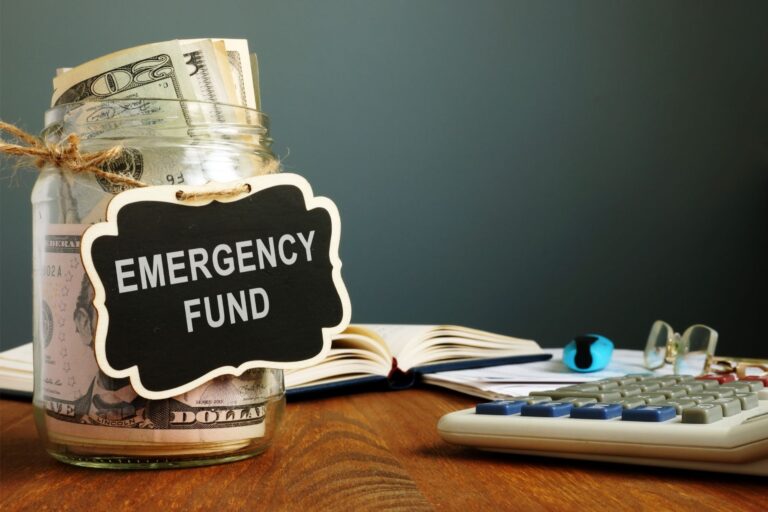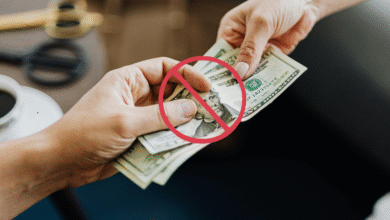9 Worst Financial Decisions You'll Regret Later

Look, I’m not here to sugarcoat things or pretend I’ve got everything figured out. After years of studying finance and watching people (including myself) make some seriously questionable money moves, I’ve learned one harsh truth: your bank account reflects every dumb decision you’ve ever made.
Ever caught yourself wondering why your friends seem to have it together while you’re counting pennies three days before payday? Yeah, me too. And trust me, it’s usually not about how much you earn, it’s about the financial landmines you keep stepping on without even realising it.
Here’s the deal: most financial disasters don’t happen overnight. They’re the result of small, seemingly harmless decisions that snowball into full-blown crises. And honestly? Some of these mistakes are so common that we’ve normalised them. But just because everyone’s doing it doesn’t make it smart.
So grab your coffee (or wine, no judgment here), and let’s talk about the financial mistakes that’ll have future-you cursing present-you. FYI, I’m keeping this real and practical because nobody needs another boring lecture about money.
What Are Bad Financial Decisions?
Alright, let’s get the obvious stuff out of the way first. Bad financial decisions are basically any money moves that leave you worse off than before. Think of them as financial self-sabotage, except you’re probably not doing it on purpose.
These aren’t just about buying that overpriced latte everyone loves to blame (seriously, let’s retire that argument). We’re talking about patterns and choices that actively drain your resources, limit your options, and keep you trapped in a cycle of financial stress.
When you consistently make poor financial calls, you’re essentially building a house of cards. Everything seems fine until one unexpected expense, a car repair, a medical bill, or a sudden job loss, comes along and sends the whole thing crashing down.
And here’s the kicker: you can’t save, invest, or build wealth when you’re constantly putting out financial fires.
From my experience working with clients and analysing financial data, bad decisions usually share one thing in common: they prioritise instant gratification over long-term stability. It’s like eating dessert for every meal and wondering why you feel terrible.
Examples Of Bad Financial Decisions
Making Impulse Purchases
Oh boy, where do I even start with this one? Impulse buying is the financial equivalent of drunk texting your ex; it feels right in the moment, but you’ll definitely regret it later.
Picture this: you’re scrolling through Instagram at 2 AM, and suddenly you need that gadget/clothing item/kitchen tool that everyone’s raving about. Thirty seconds later, your credit card info is entered, and boom, you’ve just added to your mounting debt. Sound familiar?
The psychology behind impulse purchases is fascinating (and terrifying). Retailers literally spend millions studying how to trigger our impulse-buying instincts. Those “limited time offers” and “only 2 left in stock” messages? They’re designed to hijack your rational thinking and trigger FOMO.
Here’s what really grinds my gears: most impulse purchases end up in a closet, unused, while the credit card balance keeps growing. I’ve seen people accumulate thousands in debt buying things they barely remember purchasing. The temporary dopamine hit isn’t worth the long-term financial pain.
Living Paycheck To Paycheck
This one hits different because it’s not always about earning too little; it’s about spending too much. I know people making six figures who still run out of money before the next paycheck arrives. How? Because lifestyle inflation is real, and it’s ruthless.
Living paycheck to paycheck means you’re one emergency away from financial disaster. No cushion, no safety net, just hoping nothing goes wrong. And let’s be honest, when does everything ever go according to plan?
The stress of this lifestyle is insane. You’re constantly checking your bank balance, juggling bills, and deciding which payment can be delayed. It’s exhausting, and it keeps you from thinking about bigger financial goals like investing or retirement.
What frustrates me most is how normalised this has become. We treat it like an inevitable part of modern life, but it doesn’t have to be. Breaking this cycle requires intentional changes, but it’s absolutely possible.
Exhibiting Bad Money Habits
Let’s talk about the sneaky stuff, the everyday habits that seem harmless but are quietly destroying your financial future. Bad money habits are like termites eating away at your finances: you don’t notice the damage until it’s severe.
Some classics include: never checking your bank statements (ignorance isn’t bliss, it’s expensive), paying only minimum balances on credit cards (enjoy that compounding interest!), and avoiding difficult money conversations with your partner (nothing says “healthy relationship” like hidden debt, right?).
Then there’s the “I deserve this” mentality after a tough day. Look, treating yourself occasionally is fine. But when every tough day becomes an excuse to spend money, you’re not treating yourself, you’re financially self-destructing.
IMO, the worst habit is avoiding your finances altogether. Not opening bills, ignoring your budget, pretending everything’s fine while your debt grows, this avoidance creates way more problems than it solves.
How To Recover From Bad Financial Decisions
Acknowledge Your Mistakes
Here’s something nobody wants to hear but everyone needs to: you can’t fix what you won’t face. Seriously, the first step in recovering from financial mistakes is admitting you made them in the first place.
I get it, acknowledging your money mistakes feels terrible. It’s like standing on a scale after the holidays: uncomfortable and slightly horrifying. But you know what’s worse? Continuing to make the same mistakes because you’re too proud or scared to look at them honestly.
When I work with clients, this is always the hardest part. People would rather perform financial gymnastics than admit they screwed up. But here’s the truth: every successful person has made financial mistakes. The difference is that they learned from them instead of repeating them.
Stop beating yourself up and start learning. What triggered the bad decision? Was it emotional spending? Lack of planning? Peer pressure? Understanding the “why” is crucial for preventing future screw-ups. And please, for the love of compound interest, forgive yourself and move forward.
Take Action To Improve Your Finance
Okay, confession time: I hate vague financial advice. “Be better with money” is about as helpful as “exercise more” when you’re trying to get fit. You need specific, actionable steps.
First, slash unnecessary expenses like you’re Marie Kondo-ing your budget. That subscription you forgot about? Gone. The premium cable package you barely watch? Bye. Are those daily convenience purchases adding up to hundreds monthly? Time to cut back.
Living below your means isn’t glamorous, but it works. It means choosing the cheaper option, delaying gratification, and being okay with “good enough” instead of “perfect.” Your future self, sitting comfortably in retirement, will thank you profusely.
Start saving aggressively, even if it’s uncomfortable. Automate transfers to savings so you don’t have to rely on willpower. Treat savings like a non-negotiable bill, not an afterthought. And yes, it might mean sacrificing some fun now, but financial security feels way better than temporary pleasure.
Learn From Others
Want to know the fastest way to improve your finances? Stop trying to figure everything out alone and learn from people who’ve already succeeded.
Find someone in your circle who’s killing it financially, not just earning a lot, but managing money wisely. Take them to coffee (your treat) and pick their brain. Most financially successful people love sharing their strategies because they remember struggling too.
Books are gold mines for financial wisdom. Personal finance authors have spent years researching and testing strategies so you don’t have to. Some game-changers include “The Psychology of Money,” “I Will Teach You to Be Rich,” and “The Simple Path to Wealth.” These aren’t boring textbooks; they’re practical guides that actually make sense.
Don’t forget about podcasts and YouTube channels focused on personal finance. I’m talking about creators who share real strategies, not get-rich-quick schemes. Learn about budgeting systems, investment strategies, and money psychology from people who’ve walked the path.
Develop Good Money Habits
This is where the magic happens, folks. Good financial habits are the foundation of long-term wealth, not lucky breaks or secret strategies, just consistent, smart behaviours repeated over time.
Start with the basics: track every expense (yes, every single one), create a realistic budget, and actually stick to it. Before making any purchase, wait 24 hours. This simple delay can save you from countless impulse buys.
Automate everything you can. Set up automatic transfers to savings, automatic bill payments, and automatic retirement contributions. Remove the need for willpower by making good decisions the default option.
Practice mindful spending. Before buying anything, ask yourself three questions: Do I need this? Can I afford this without debt? Will this purchase align with my financial goals? If you can’t answer yes to all three, walk away.
9 Worst Financial Decisions To Never Make
1. Not Saving From Your Monthly Income

Let me hit you with some uncomfortable truth: if you’re not saving at least something from every paycheck, you’re essentially flying without a parachute. And trust me, the landing is gonna hurt.
I don’t care if you’re making $30,000 or $300,000 annually; if every penny disappears before the next paycheck, you’re in trouble. The size of your emergency fund matters, but what matters more is actually having one in the first place.
Here’s what blows my mind: people spend more time planning their weekend than planning their financial future. They’ll research restaurants for hours but won’t spare 30 minutes to set up automatic savings. Make it make sense 🙂
The excuse I hear most is “I don’t earn enough to save.” Okay, fair, but have you actually tried? Studies show that even saving 1-2% of your income creates a psychological shift that leads to better financial decisions. It’s not about the amount initially; it’s about building the habit.
Start small if you have to. Five dollars per paycheck. Ten dollars. Whatever doesn’t make you panic. The key is consistency, not perfection. Apps like Qapital or Digit can automate micro-savings, making it painless.
And if you genuinely can’t find money to save after covering essentials, you’ve got a spending problem or an income problem, probably both. Cut expenses ruthlessly or find ways to increase your income through side hustles, overtime, or freelancing. Tools like Upwork or Fiverr make it easier than ever to earn extra cash.
2. Spending Lavishly In Your 20s
Okay, real talk: your 20s are either your financial launchpad or your money graveyard, there’s not much middle ground. And I’ve watched too many people choose the graveyard without realising it until their 30s hit.
I get the temptation. You’ve just escaped college (probably with student loans breathing down your neck), you’re earning your first real paycheck, and everyone around you is living their best Instagram life. The pressure to keep up is intense.
But here’s what those Instagram posts don’t show: the credit card debt, the anxiety about money, the inability to handle any financial emergency. That person is flexing their new car? They might be drowning in a 72-month loan at 12% interest. Reality hits differently than social media.
Your 20s are when compound interest can work absolute magic for you, but only if you’re investing, not blowing money on bottle service and designer labels. A $5,000 investment at age 25 can grow to over $50,000 by retirement. That same money spent impressing people who don’t care about you? Gone forever.
The math is brutal. Every dollar you waste in your 20s is actually costing you about $10 in future wealth when you account for compound growth. Think about that next time you’re considering an expensive purchase to “treat yourself.”
You’ve got minimal responsibilities right now. No mortgage, probably no kids, fewer obligations. This is your chance to save aggressively, invest heavily, and build a financial foundation that’ll support you for decades. Don’t waste it trying to look successful before you actually are.
3. Making Big Irrelevant Purchases

Ever notice how the biggest financial mistakes usually involve the biggest purchases? There’s something about large price tags that short-circuits our rational thinking.
I’ve watched people drop $3,000 on furniture they “absolutely needed” when perfectly good used options existed for $300. The rationalisation is Olympic-level: “It’s an investment,” “I’ll have it forever,” “I work hard, I deserve it.” Meanwhile, they’ve got $15,000 in credit card debt at 22% APR.
Here’s my rule: if you can’t afford to pay cash for it and you won’t literally die without it, you can’t afford it. Period. That expensive gadget, luxury vacation, or designer whatever-it-is can wait until you’ve saved the money.
The worst part? These purchases rarely bring lasting happiness. Studies consistently show that material purchases provide brief satisfaction before you return to your baseline happiness level. But the debt? That sticks around much longer than the happiness.
Before making any purchase over $500, I recommend a 30-day waiting period. Write down what you want and why. If you still want it after 30 days and can pay cash, go for it. But I’ll bet money (ha!) that many of these “must-have” items suddenly seem less essential after some time passes.
Use apps like Honey to find discounts, compare prices on Google Shopping, and always check for used options first. Your wallet will thank you, and you’ll avoid buyer’s remorse.
4. Failing To Pay Off Your Credit Card
Let’s get one thing straight: credit card debt is a financial emergency, not a lifestyle choice. If you’re only paying minimums or regularly carrying balances, you’re essentially lighting money on fire monthly.
The numbers are terrifying. With average APRs hovering around 20-24%, a $5,000 balance can cost you over $1,000 per year in interest alone if you only pay minimums. That’s money you’re giving away for absolutely nothing in return.
I see people treat their credit cards like free money, planning to “pay it off later” when they’re less busy or making more money. Spoiler alert: later never comes because life always provides new expenses. Debt doesn’t age like wine; it ages like milk.
Here’s what actually works: stop using the card immediately, create a debt avalanche or snowball plan (pick one and stick with it), and throw every extra dollar at that balance. Use calculators on Bankrate or NerdWallet to see how much you’re actually paying in interest; it’s usually way more than you think.
If you’ve got multiple cards with high balances, consider a balance transfer to a 0% APR card. Cards like the Citi Diamond Preferred or Chase Slate Edge offer extended 0% periods, giving you breathing room to knock out the principal without accruing more interest.
But here’s the critical part: balance transfers are useless if you keep spending. You’re not fixing the problem; you’re just moving it around. Address the spending behaviour, or you’ll end up right back where you started.
5. Not Budgeting Your Monthly Income
I’m just gonna say it: flying blind with your finances is spectacularly stupid. Not having a budget is like driving cross-country without a map or GPS; you might eventually get somewhere, but it probably won’t be where you wanted to go.
The resistance to budgeting drives me nuts. People act like it’s restrictive or punishing, but it’s the exact opposite. A budget permits you to spend guilt-free because you’ve already planned for it. It’s not about restriction; it’s about intention.
Without a budget, you’re vulnerable to every spending temptation, unexpected expense, and bad financial decision. You have no idea where your money goes, which means you have no control over your financial life. And control? That’s where financial peace lives.
Every financially successful person I know, and I mean every single one, has some form of budget or spending plan. It doesn’t have to be complicated spreadsheets with 47 categories. It can be as simple as the 50/30/20 rule: 50% needs, 30% wants, 20% savings and debt repayment.
Start with apps like YNAB (You Need A Budget), Mint, or EveryDollar. They connect to your accounts and automatically categorise spending, making budgeting painless. Give them one month of data, and you’ll be shocked at where your money actually goes.
The beauty of budgeting is that it removes the guesswork and guilt. You know exactly what you can spend on fun stuff without derailing your financial goals. That’s freedom, not restriction.
6. Not Building An Emergency Fund

Want to know the difference between people who handle unexpected expenses calmly and those who panic? An emergency fund. That’s it. That’s the difference.
Life doesn’t care about your financial situation when it decides to throw curveballs. Your car will break down, medical issues will arise, job losses happen, pipes burst, it’s not “if” but “when.” And when you don’t have an emergency fund, every crisis becomes a catastrophe.
I’ve watched people derail years of financial progress because one unexpected $1,500 expense sent them spiralling into credit card debt. Then they’re paying interest on that emergency for months or years, making everything worse. An emergency fund isn’t optional; it’s the foundation of financial stability.
The standard advice is 3-6 months of expenses, but honestly, start with $1,000 if that’s all you can manage. That covers most common emergencies without requiring months of aggressive saving. Once you’ve got that baseline, build toward three months, then six.
Park your emergency fund somewhere accessible but not too accessible. High-yield savings accounts from Marcus by Goldman Sachs, Ally Bank, or Discover offer decent interest rates while keeping your money liquid. Don’t put it in stocks or anywhere with market risk; emergency funds need to be stable and immediately available.
And please, for all that is holy, only use it for actual emergencies. A sale at your favourite store is not an emergency. A vacation opportunity is not an emergency. Your emergency fund is your financial life jacket; don’t use it as a piggy bank.
7. Not Investing
Here’s an uncomfortable truth bomb: if you’re not investing, inflation is slowly stealing your wealth even if you’re saving diligently. Money sitting in a regular savings account is actually losing purchasing power over time.
The biggest myth about investing is that you need to be rich or an expert to start. Wrong. Thanks to platforms like Vanguard, Fidelity, and Schwab, you can start investing with as little as $1. And apps like Acorns or Robinhood make it even more accessible.
Another myth: investing is risky gambling. Actually, not investing is the risky move. Over long periods, the stock market has consistently outperformed every other asset class. Yeah, there are ups and downs (2008, early 2020, etc.), but if you’re investing for the long term, like retirement, those short-term fluctuations don’t matter.
The power of compound interest is literally the closest thing to magic that exists in finance. A 25-year-old investing $200 monthly will have over $500,000 by age 65, assuming average market returns. A 35-year-old doing the same? About $250,000. Those ten years cost them a quarter million dollars.
Start with simple index funds, specifically, broad market funds like VTSAX or the S&P 500. Don’t try to pick individual stocks unless you genuinely enjoy research and can stomach volatility. The boring, passive approach consistently beats most active strategies.
If you’re overwhelmed, robo-advisors like Betterment or Wealthfront will build and manage a diversified portfolio for you with minimal fees. They ask about your risk tolerance, timeline, and goals, then handle everything automatically.
Stop making excuses. Stop waiting for the “perfect time” to start. The perfect time was ten years ago; the second-best time is today.
8. Failing To Have A Backup Plan
Life’s unpredictability isn’t a bug; it’s a feature. And people who thrive financially aren’t lucky; they’re prepared. They have backup plans for their backup plans.
A proper financial safety net includes multiple layers of protection. First layer: emergency fund (we already covered this). Second layer: insurance, health, life, disability, auto, renters/homeowners. Third layer: income diversification through side hustles or passive income streams.
I see people gambling with their financial security daily by going without insurance. “I’m young and healthy,” they say, right before a freak accident generates $50,000 in medical bills. Or “I’ll never get disabled,” ignoring that about 1 in 4 people will experience a disability during their working years.
Insurance isn’t exciting, but it’s essential. Shop around using sites like Policygenius for life and disability insurance, and don’t just accept whatever your employer offers without comparing options. Sometimes individual policies offer better coverage for less money.
Think about income diversification, too. If your sole income source is one job, you’re vulnerable. What happens if you get laid off? If your industry tanks? If your company goes under? Having side income, even small amounts, provides both extra cash flow and psychological security.
The goal isn’t paranoia; it’s preparedness. Sleep better knowing that if something goes wrong (and eventually something will), you’ve got multiple safety systems in place.
9. Failing To Protect Your Personal Information
Okay, time for a scary statistic: in 2024, identity theft affected over 15 million Americans and cost victims an average of $1,100 each. And these numbers keep climbing as scammers get more sophisticated.
Your personal information is valuable currency on the dark web. With social Security numbers, banking details, and credit card info, criminals can do massive damage with surprisingly little data. And once you’re a victim, cleaning up the mess is a nightmare that can take years.
Basic protection steps seem obvious but are often ignored: use unique, strong passwords for every account (password managers like 1Password or Bitwistle make this easy), enable two-factor authentication everywhere possible, and never, ever click suspicious links in emails or texts.
Monitor your credit reports regularly using AnnualCreditReport.com’re entitled to free reports from each bureau annually. Check them for accounts you didn’t open or activity you don’t recognise. Catching fraud early drastically reduces the damage.
Consider a credit freeze if you’re not actively applying for new credit. This prevents anyone (including you) from opening new accounts in your name without first unfreezing your credit. It’s free, easy, and provides excellent protection against identity theft.
Be suspicious of anything that seems too good to be true or creates urgency. Scammers prey on emotions, fear, greed, and excitement. That email saying your account has been compromised? Probably fake. That investment opportunity with “guaranteed” returns? Definitely fake. Take a breath, verify independently, and don’t make impulsive decisions.
Protecting your personal information isn’t paranoia; it’s due diligence in a digital age where data breaches happen constantly.
Final Thoughts
Nobody’s perfect with money. I’ve made plenty of mistakes myself. What separates people who build wealth from those who stay broke is learning from mistakes and making better choices consistently.
Every financial decision today echoes into your future. Small impulse purchases seem harmless, but over time, they add up to thousands that could’ve been saved, invested, or spent on meaningful experiences.
It’s never too late to start. Pick one change, build an emergency fund, create a budget, or stop using credit cards, and stick with it for 30 days. Then add another. Your future self will thank you.








